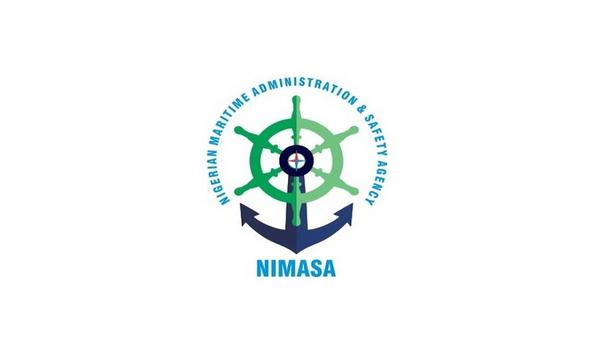The Nigerian Administration and Safety Agency (NIMASA) has stressed the need for journalists to show professionalism and commitment in carrying out their duties with a view to enhancing and further developing the potential of the country’s maritime industry.
This was the subject matter of resource persons who made presentations at a training workshop organized for maritime journalists in Lagos with the theme: Regulating the Maritime Industry: The NIMASA Perspective.
The workshop which was held at the Litack Kim Regional Maritime Safety and Security Centre of Excellence Centre in NIMASA facility at Kirikiri, Apapa Lagos had two resource persons, who focused on two topics considered germane and apt to the development of the maritime sector of the Nigerian economy.
A retired Director of Shipping Development at NIMASA, Mr. Anthony Ogadi, who presented the first paper, titled: NIMASA’s Role in Nigeria’s Participation in International Shipping Trade,’ lamented that no Nigerian company has ever freighted a drop of Nigerian crude oil out of Nigeria, which drew the attention of all participants.
Giving an overview of the potential in the shipping business in the country, he noted that Nigeria has about 850km stretch of coastline, seven ports, 28 crude oil terminals, hub to West and Central Africa bordering Niger and Chad with over 200 million population and over 623 million tons of wet, dry and gas cargoes on annual basis.
Ogadi pointed out that Nigeria has between 16 and 22 million barrels of crude oil reserves, five-years freight value of about ₦32 trillion averaging ₦6 trillion per annum, largest ship owning country in Africa and 33 on the global list, 291 vessels amounting to 7.94 million deadweight tons and 30th position in world fleet value with a 0.56 percent share.
He presented a 10-year analysis of cargo throughput in Nigeria, noting that between 2010 and 2019, Nigeria had 775.7 million metric tons of cargo and that a decade’s export value of crude oil between 2013 and 2023 amounted to ₦22.1 trillion.
Ogadi’s presentation also showed a chart of 13 shipping companies operating in and out of Nigeria, adding that no single Nigerian ocean liner has been involved in all maritime businesses as of now.
He equally ran participants through the era of the Nigerian Maritime Authority (NMA) from 1987 to present reality of the agency transitioning to NIMASA in 2007 and the key comparative advantage that this has given the country.
Read Also: NMA, RIVCHPP partner on quality healthcare for Rivers citizens
“Freights are additional income to the cost or cargo if shipment is self carrying meaning that countries that generate cargoes as well as shipping them by their own vessels stand the chance of double advantage earnings from freight and cost most probably in the insurance cover on cargo and haulage,” he said.
Citing the rail project embarked upon by the immediate past administration in which the former Minister for Transportation went to China to sign the rail project contract, he noted that after signing the agreement, the Minister returned to Nigeria feeling proud of his achievements and invited heads of units of the agencies under the ministry and told them that he has ‘brought jobs for them.’
The Minister was told that there was ‘no job brought in for anybody because all the components of the project including loan financing, shipment, internal transportation, employment of staff members, construction and up to the very last aspects of the entire project had been conceded to the Chinese.
Further providing details of the whole gamut of maritime administration from the NIMASA perspective, he concluded that the Federal Government through NIMASA has positioned the maritime industry on the path of growth and indigenous participation.
Presenting the second paper titled: Understanding the International Maritime Regulatory Framework, Barrister Peter Agbaminoja, Deputy Director and Special Assistant (SA) to the Executive Director Operations of NIMASA, dwelled on the history of the maritime known world from 2,000 years ago.
Agbaminoja, who traced the events that led to agreed maritime operations legal frameworks to the present time, took participants through the formation of the International Maritime Organization (ILO) and its various conventions, rules and the formation of the League of Nations which later became the United Nations (UN).
He spoke on the various events that brought about the need for setting of standards, the signing of treaties and the reaching of conventions like the sinking of the Titanic in 1912, the end of the first world war in 1919 and the end of the second world war in 1945 while also adding that issues such as the sinking of other ships brought about the enhancement of extant laws.
Director, Administration and Human Resources at NIMASA, Mr. Isichei Osamgbi, also spoke briefly at the event, saying: “The maritime industry holds the key to the future of the Nigerian economy.
“The media can make or mar the Nigerian situation and so we should carry out our duties to help enrich the industry. There is no great nation on earth that is not a maritime nation and it is our turn as media people to help make Nigeria great.”






